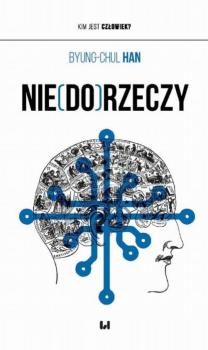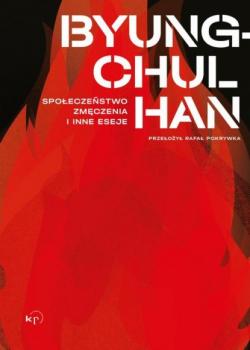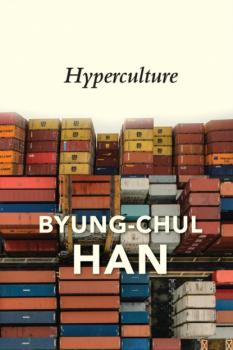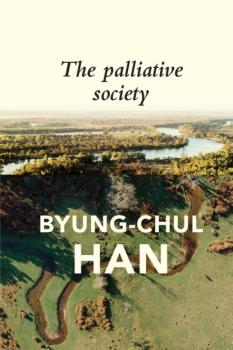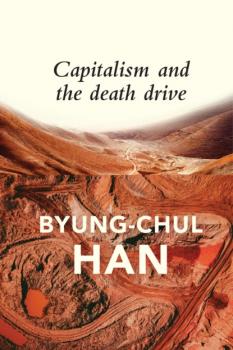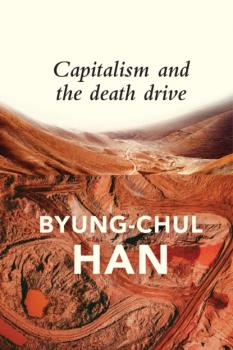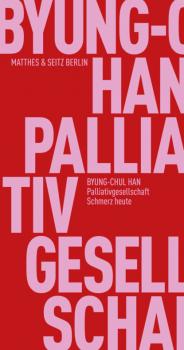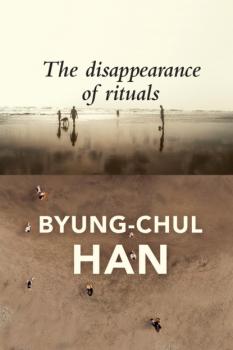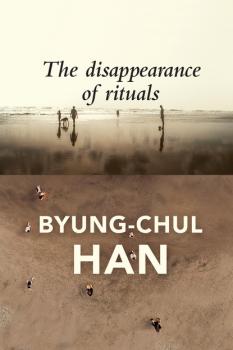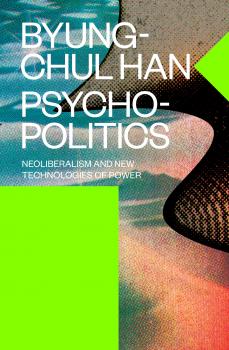Byung-Chul Han
Список книг автора Byung-Chul HanHyperculture
In the wake of globalization, cultural forms of expression have become increasingly detached from their places of origin, circulating in a hyper-domain of culture where there is no real difference anymore between indigenous and foreign, near and far, the familiar and the exotic. Heterogeneous cultural contents are brought together side by side, like the fusion food that makes free use of all that the hypercultural pool of spices, ingredients and ways of preparing food has to offer. Culture is becoming un-bound, un-restricted, un-ravelled: a hyperculture. It is a profoundly rhizomatic culture of intense hybridization, fusion and co-appropriation. Today we have all become hypercultural tourists, even in our ‘own’ culture, to which we do not even belong anymore. Hypercultural tourists travel in the hyperspace of events, a space of cultural sightseeing. They experience culture as cul-tour. Drawing on thinkers from Hegel and Heidegger to Bauman and Homi Bhabha to examine the characteristics of our contemporary hyperculture, Han poses the question: should we welcome the human of the future as the hypercultural tourist, smiling serenely, or should we aspire to a different way of being in the world?
The Palliative Society
Our societies today are characterized by a universal algophobia: a generalized fear of pain. We strive to avoid all painful conditions – even the pain of love is treated as suspect. This algophobia extends into society: less and less space is given to conflicts and controversies that might prompt painful discussions. It takes hold of politics too: politics becomes a palliative politics that is incapable of implementing radical reforms that might be painful, so all we get is more of the same. Faced with the coronavirus pandemic, the palliative society is transformed into a society of survival. The virus enters the palliative zone of well-being and turns it into a quarantine zone in which life is increasingly focused on survival. And the more life becomes survival, the greater the fear of death: the pandemic makes death, which we had carefully repressed and set aside, visible again. Everywhere, the prolongation of life at any cost is the preeminent value, and we are prepared to sacrifice everything that makes life worth living for the sake of survival. This trenchant analysis of our contemporary societies by one of the most original cultural critics of our time will appeal to a wide readership.
Capitalism and the Death Drive
What we call growth today is in fact a tumorous growth, a cancerous proliferation which is disrupting the social organism. These tumours endlessly metastasize and grow with an inexplicable, deadly vitality. At a certain point this growth is no longer productive, but rather destructive. Capitalism passed this point long ago. Its destructive forces cause not only ecological and social catastrophes but also mental collapse. The destructive compulsion to perform combines self-affirmation and self-destruction in one. We optimize ourselves to death. Brutal competition ends in destruction. It produces an emotional coldness and indifference towards others as well as towards one’s own self. The devastating consequences of capitalism suggest that a death drive is at work. Freud initially introduced the death drive hesitantly, but later admitted that he ‘couldn’t think beyond it’ as the idea of the death drive became increasingly central to his thought. Today, it is impossible to think about capitalism without considering the death drive.
Palliativgesellschaft
Heute herrscht überall eine Algophobie, eine generalisierte Angst vor Schmerzen. Jeder schmerzhafte Zustand wird vermieden. Verdächtig sind auch Liebesschmerzen. Die Schmerztoleranz sinkt rapide. Die Algophobie hat eine Daueranästhesierung zur Folge. Wie bereits in seinem Essay Müdigkeitsgesellschaft geht Han in seiner Analyse von einem grundlegenden Paradigmenwechsel unserer Gesellschaft aus. Auch die Psychologie folgt dieser Entwicklung und geht von der negativen Psychologie als Psychologie des Leidens zur Positiven Psychologie über, die sich mit Wohlbefinden, Glück und Optimismus beschäftigt. Der Essay zeigt, wie sich die Algophobie ins Gesellschaftliche verlängert. Konflikten und Kontroversen, die zu schmerzhaften Auseinandersetzungen führen können, wird immer weniger Raum gegeben. Die Algophobie erfasst auch die Politik. Konformitätszwang und Konsensdruck nehmen zu. Eine Postdemokratie macht sich breit. Sie ist eine palliative Demokratie. Der Essay bezieht aktuelle Ereignisse wie die US-amerikanische Opioid Krise oder auch die Corona-Pandemie in seine Analyse ein. Angesichts der Pandemie erweist sich die Palliativgesellschaft als eine Gesellschaft des Überlebens.
The Disappearance of Rituals
Untrammelled neoliberalism and the inexorable force of production have produced a 21st century crisis of community: a narcissistic cult of authenticity and mass turning-inward are among the pathologies engendered by it. We are individuals afloat in an atomised society, where the loss of the symbolic structures inherent in ritual behaviour has led to overdependence on the contingent to steer identity. <br /><br />Avoiding saccharine nostalgia for the rituals of the past, Han provides a genealogy of their disappearance as a means of diagnosing the pathologies of the present. He juxtaposes a community without communication – where the intensity of togetherness in silent recognition provides structure and meaning – to today’s communication without community, which does away with collective feelings and leaves individuals exposed to exploitation and manipulation by neoliberal psycho-politics. The community that is invoked everywhere today is an atrophied and commoditized community that lacks the symbolic power to bind people together. For Han, it is only the mutual praxis of recognition borne by the ritualistic sharing of the symbolic between members of a community which creates the footholds of objectivity allowing us to make sense of time. <br /><br />This new book by one of the most creative cultural theorists writing today will be of interest to a wide readership.
Psychopolitics
Exploring how neoliberalism has discovered the productive force of the psyche Byung-Chul Han, a star of German philosophy, continues his passionate critique of neoliberalism, trenchantly describing a regime of technological domination that, in contrast to Foucault’s biopower, has discovered the productive force of the psyche. In the course of discussing all the facets of neoliberal psychopolitics fueling our contemporary crisis of freedom, Han elaborates an analytical framework that provides an original theory of Big Data and a lucid phenomenology of emotion. But this provocative essay proposes counter models too, presenting a wealth of ideas and surprising alternatives at every turn.
